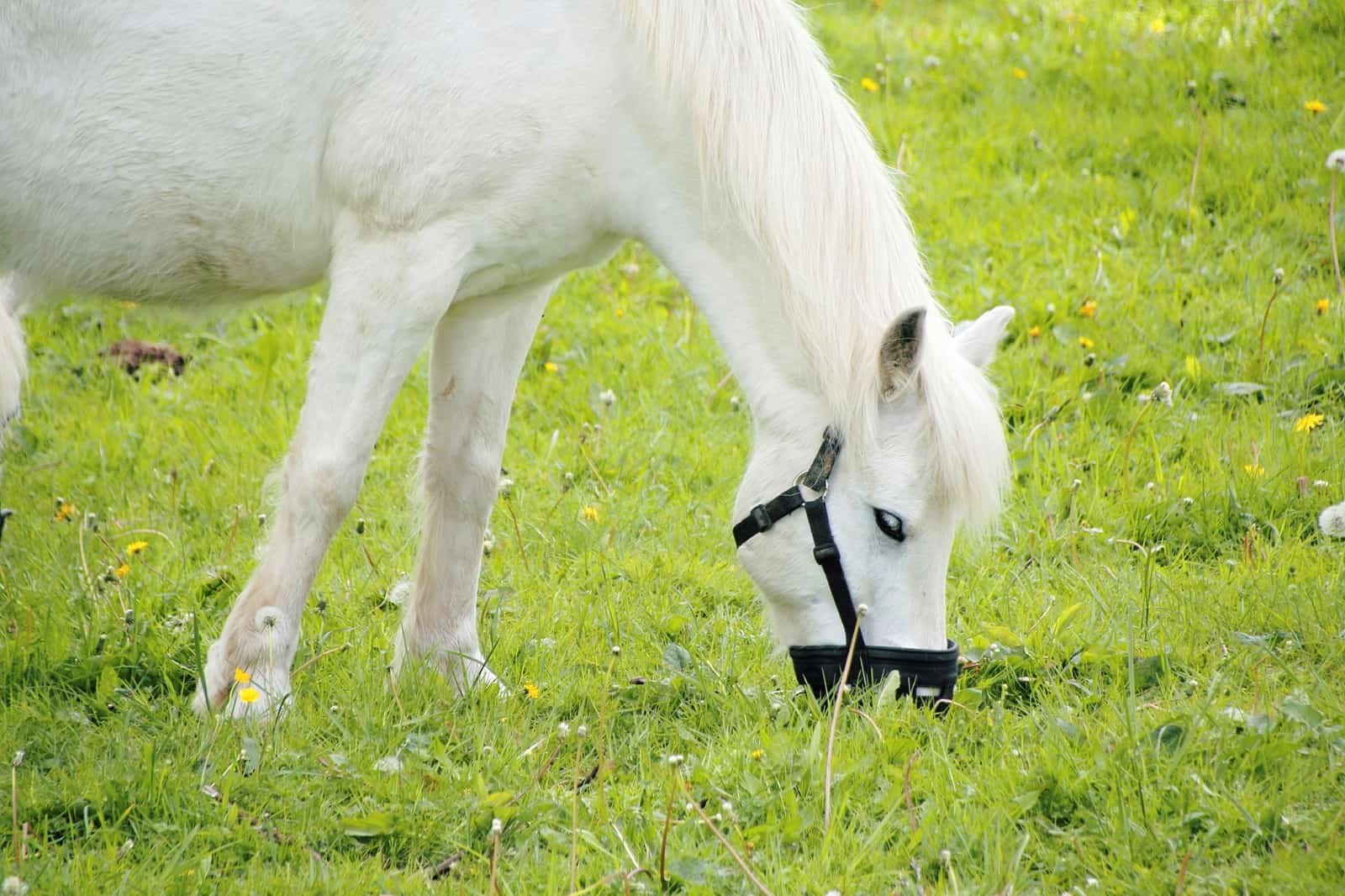Do Grazing Muzzles Stress Out Horses?

Top three-day event horses might have lower heart rates and blood lactate levels (indicative of fitness) than less successful event horses. In his study, Joe Pagan, PhD, founder of Kentucky Equine Research, also determined that with high V200 (another fitness indicator) had better dressage scores, which “may seem counterintuitive in the eventing community where conventional wisdom says that fitter horses do less well in dressage,” he said.
English stirrup type (traditional, flexible, or flexible and rotating) does not appear to affect rider position or the forces experienced by the horse or rider. However, Jane Manfredi, DVM, MS, PhD, Dipl. ACVS-LA, ACVSMR, assistant professor at Michigan State University (MSU), found that 75% of the riders reported right hip pain and all rotated their right toes further outward than their left, perhaps to compensate for that pain. “We have some very asymmetrical riders,” she said.
Horses clicker-trained to trot for a gait analysis move more freely than handler-jogged horses, making this a viable way for researchers to get representative gait samples when they don’t have access to treadmills. Madison Fagan, PhD, of the University of Georgia, did not find any differences between handler-led and clicker-trained horses’ trot speeds or leg symmetries
Create a free account with TheHorse.com to view this content.
TheHorse.com is home to thousands of free articles about horse health care. In order to access some of our exclusive free content, you must be signed into TheHorse.com.
Start your free account today!
Already have an account?
and continue reading.

Written by:
Alexandra Beckstett
Related Articles
Stay on top of the most recent Horse Health news with















